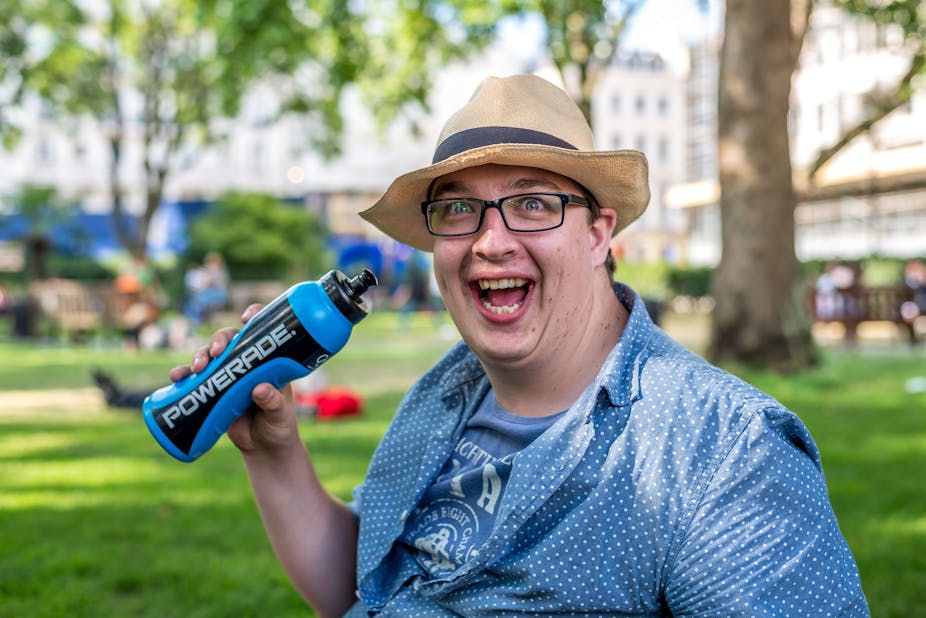A proposal to allow sports drinks manufacturers to feature health claims has led to something of a spat between the drinks industry and a health lobby group. The heart of the matter is whether “sport drinks” are, in fact, healthy.
Sports drinks, such as Powerade and Gatorade, were initially developed in North America in the 1960s. Their primary purpose is to help athletes with exercise performance. But it’s now commonplace for sports drinks to be purchased and consumed without any sport-related purpose in mind.
A public spat
The controversy started with Food Standards Australia New Zealand proposing to allow sports drinks to make health claims beyond what’s currently permitted. The claims are to be self-substantiated by manufacturers so there will be no requirement for their veracity to be independently verified.
The Obesity Policy Coalition has warned against the proposal, saying the change would allow:
popular sports drinks with nearly as much sugar as soft drink to carry health claims, which could mislead the public into thinking they were healthier choices than water.
In response, the chief executive officer of the Australian Beverages Council has claimed there’s significant evidence for the benefits of sports drinks and that manufacturers just wanted to:
tap into a whole lot of internationally recognised research and scientific studies which are out there, which start to flesh out some of the more detailed, functional benefits that electrolytes and sports drinks can actually make.
What are these “functional benefits”?
Good for some
The performance or functional benefits – not health benefits – of sports drinks are widely recognised for sporting events that go for longer than two hours, such as marathons, cycling or triathlons.
Research from the 1980-90s shows sports drinks help minimise fatigue during longer-term exercise. Since then, these drinks have been extensively used with great effect in “endurance” athletic events.
A 600-millilitre bottle of the sports drink Powerade, for instance, contains the energy equivalent of 30 minutes of walking or 10 to 15 minutes of jogging. That much energy content can be very useful for someone aiming to improve exercise performance, but it’s not useful for people who aren’t highly active and already eating a normal diet.
In other words, these drinks help muscles continue to function during long-term exercise because they provide rapid energy, but if you don’t burn much energy, they’re just like drinking any other sugar-sweetened drink.
Sports drinks can be beneficial for replacing fluid and they’re better at doing this than water. This reduces the risk of dehydration, which can occur even without strenuous exercise but, again, dehydration mainly happens during prolonged competitive sports, especially in hot locations.
The fact is that most fitness enthusiasts or people exercising for better health, let alone the bulk of the population that’s largely sedentary, don’t typically perform anywhere near the amount or severity of exercise as athletes who use sports drinks for stamina or to avoid fatigue and dehydration.
Bad for most
One of the reasons people exercise regularly is to maintain optimal body weight. This requires balancing energy expenditure from physical activity with energy intake. In the absence of serious exercise, sports drinks, with their extra energy intake, can be counterproductive for this.
Sports drinks are flavoursome because they contain lots of sugar. Drinking them regularly in the absence of strenuous exercise and eating your normal diet could lead to weight gain in the long term.
What’s more, drinking any liquid containing high levels of sugar, like sports drinks, has serious long-term consequences for dental health – for both athletes and non-athletes alike.
Even though they were designed for athletes, sports drinks are now usually consumed outside of strenuous exercise or sporting events, and commonly by people who are not athletes. They should be probably be reserved for those actively involved in training for competitive endurance sports. Adding claims to labels about their health benefits without caveats will potentially mislead the public.

